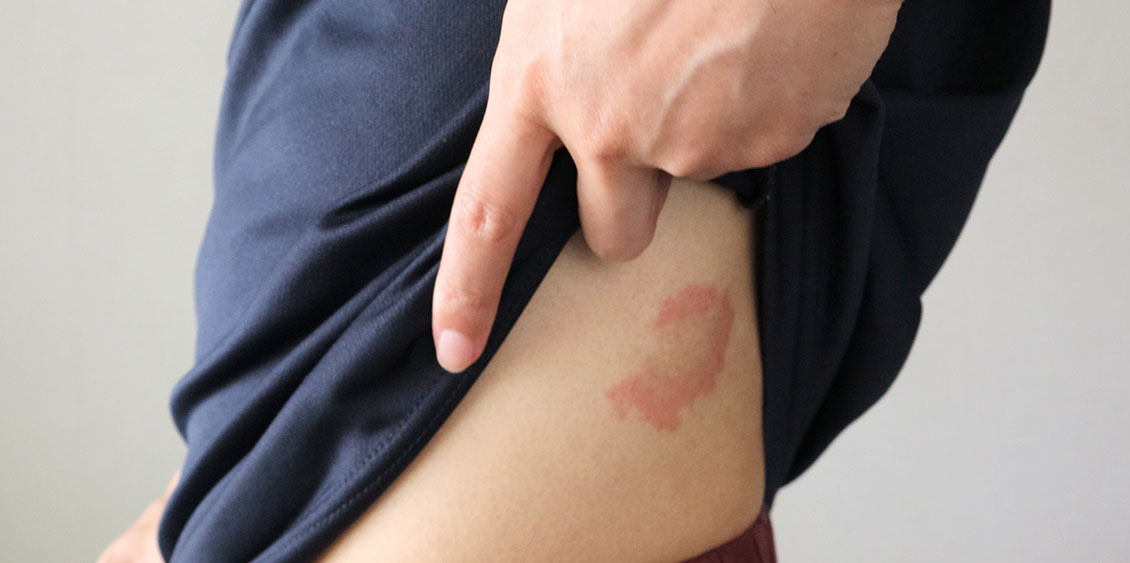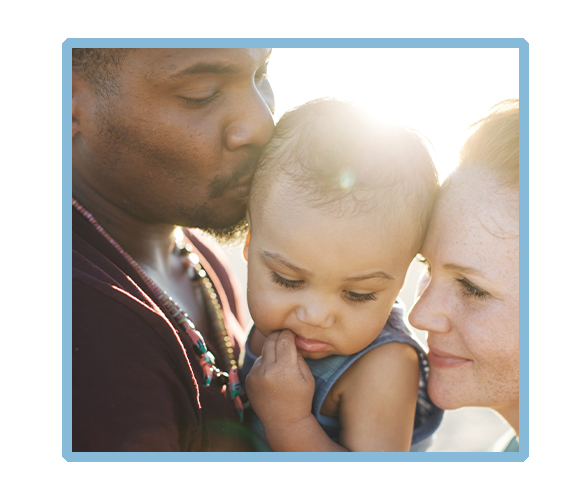Did you get chickenpox as a child? If so, you’re at risk of developing shingles later in life. So, how do you recognize shingles, and what can you do to avoid complications?

What is shingles?
Many people think shingles is just another form of chickenpox, but that isn’t accurate. Both illnesses are caused by the same virus (varicella-zoster), but they cause different symptoms. Chickenpox is also typically a childhood illness, whereas shingles mostly affects adults and older people.
Does your baby have chickenpox?
Don’t panic! See our article on 4 tips for treating chickenpox.
What causes shingles?
After a bout of chickenpox, the virus stays in your body for years in a dormant state (in other words, without causing symptoms). Later in life, the virus can reactivate and cause shingles. About one in five people who have had chickenpox will develop shingles at some point. It’s important to note that you can’t get shingles unless you’ve already been infected with the chickenpox virus.
The next logical question is: why does the chickenpox virus reactivate? The virus can reactivate for no apparent reason, but there are certain factors that increase the risk of reactivation, including:
- Older age (over 50)
- A weakened immune system in adults over 18
- Cancer
- Certain infections, including COVID-19
- Family history
- Diabetes and other chronic illnesses
- Medications that suppress the immune system
What are the symptoms of shingles?
When the shingles virus reactivates, it affects a specific area of the skin and usually appears on just one side of the body. The first symptoms of shingles are a burning or tingling sensation in the affected area.
What does shingles look like?
One to three days after the first symptoms, red patches and small fluid-filled blisters appear in clusters, often causing itching. The blisters dry out and go away within two to three weeks.
What are the possible complications of shingles?
Unfortunately, even after the skin has healed, the pain can sometimes linger. Called postherpetic neuralgia, this pain is constant and often feels like burning or electric shocks in the area affected by shingles. It can last for months or even become permanent. Postherpetic neuralgia can seriously impact quality of life, causing:
- Fatigue
- Insomnia
- Depression and anxiety
- Loss of appetite
- Weight loss
Getting shingles treated quickly may reduce the risk of complications. Therefore, if you think you may have shingles, it’s important to see a doctor or your pharmacist as soon as possible.
Is shingles contagious?
The best protection against shingles is vaccination. Aside from the vaccine, however, the best way to prevent shingles is to keep your immune system strong. That means eating well, staying active, and getting enough rest.
Only the fluid-filled blisters are contagious; once the blisters have crusted over, there’s no longer a risk of spreading the virus. If you’ve never had chickenpox and you touch the fluid-filled blisters of someone with shingles, you can catch the virus. That’s why handwashing is essential to help prevent transmission.
Pregnant women who have never had chickenpox should avoid any contact with anyone who has shingles or chickenpox, as there could be risks to the baby.
Can shingles be a sign of cancer?
Shingles isn’t a tumour: it’s the reactivation of the chickenpox virus. However, a weakened immune system—for example, due to cancer or cancer treatment—can lead to more frequent or severe episodes.
If your shingles persists, keeps coming back, or is accompanied by unusual symptoms, speak with your doctor or pharmacist soon to get the proper follow-up.
How can you prevent or treat shingles?
Vaccination
The best protection against shingles today is still the vaccine. You can book an appointment now to get it at your pharmacy.
Good to know: Since May 2023, the shingles vaccine has been available free of charge for certain populations in Quebec.
Treatment
For the best results, treatment should be started as early as possible: ideally within three days of the first skin lesions. You should see a doctor or your pharmacist as soon as you notice symptoms. You’ll likely be prescribed an antiviral that targets the virus. If you’re experiencing pain, pain relievers can also be used along with the antiviral.
For a few years now, pharmacists have also been able to prescribe antivirals under certain conditions. Consult your pharmacist to get the right treatment for your situation. You can also try a few non-medication strategies to help ease symptoms and prevent complications from shingles:
- Apply cold compresses to the affected area.
- Gently clean the lesions and keep them dry.
- Don’t scratch or pop the blisters.
- Wear loose, breathable clothing to reduce friction.
- Get plenty of rest.
Shingles is a common illness, especially as we age. If you notice symptoms that could be shingles, book an appointment with your pharmacist or stop by for a consultation. They can prescribe the right medication, offer advice, and refer you to a doctor if needed. The sooner you start treatment, the better your chances of staying comfortable and avoiding complications.
Other articles that might interest you
Last updated on July 10, 2025
